Honeyguide School Leader Support
Redirecting Low-Level Behaviour: CPD Training Bundle
Redirecting Low-Level Behaviour: CPD Training Bundle
- Buy what you need when you need it
- No costly subscription required
- Instant download
Couldn't load pickup availability
Share
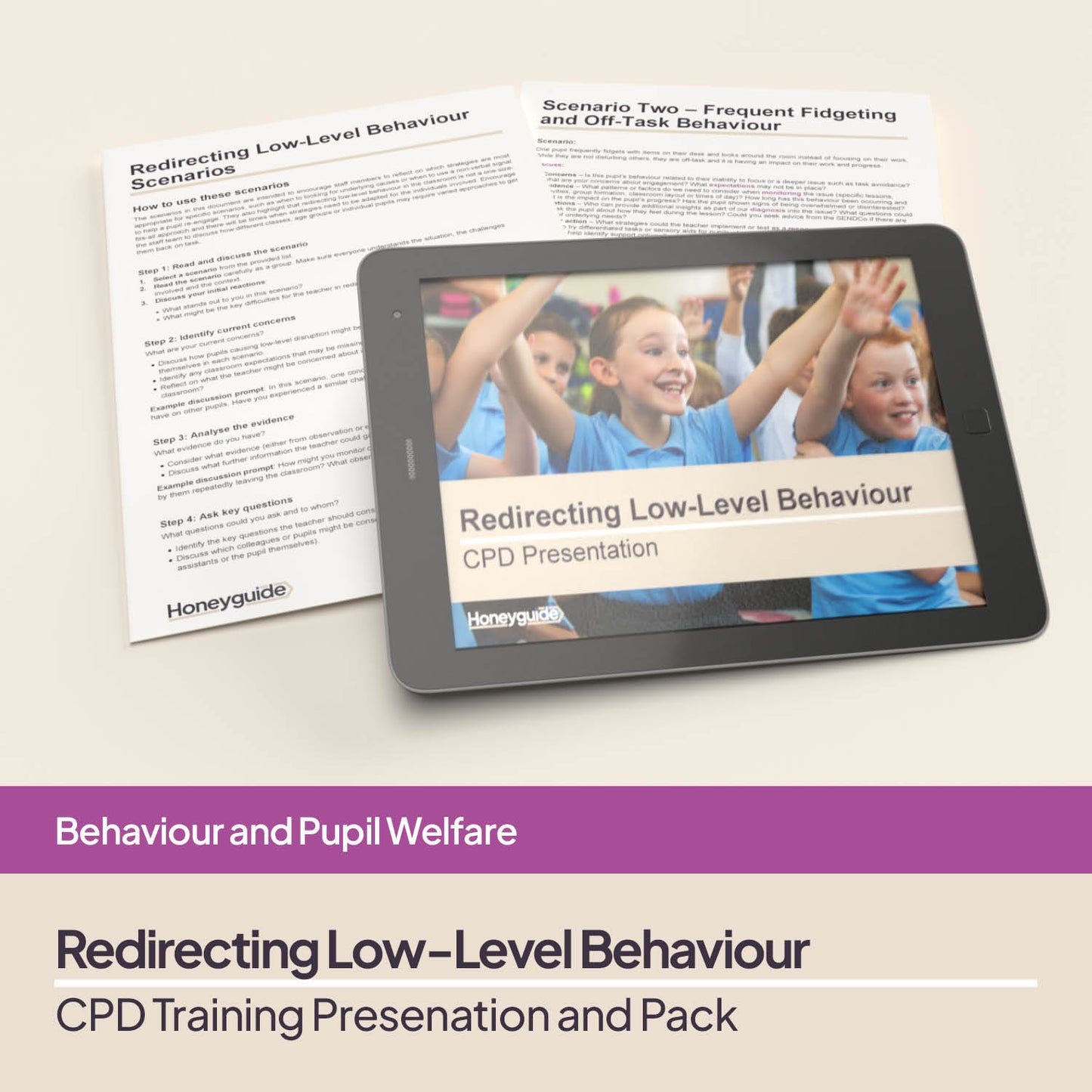
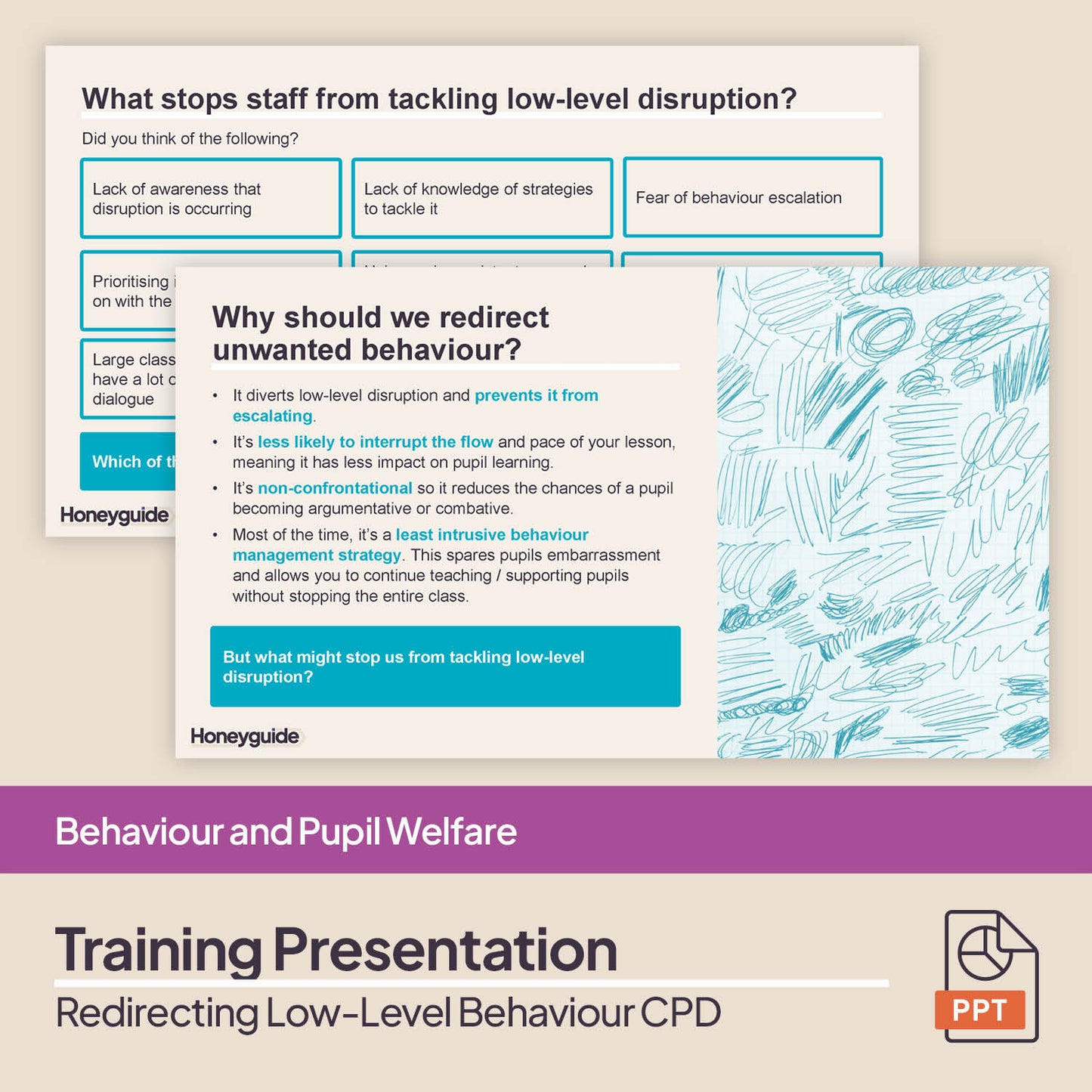
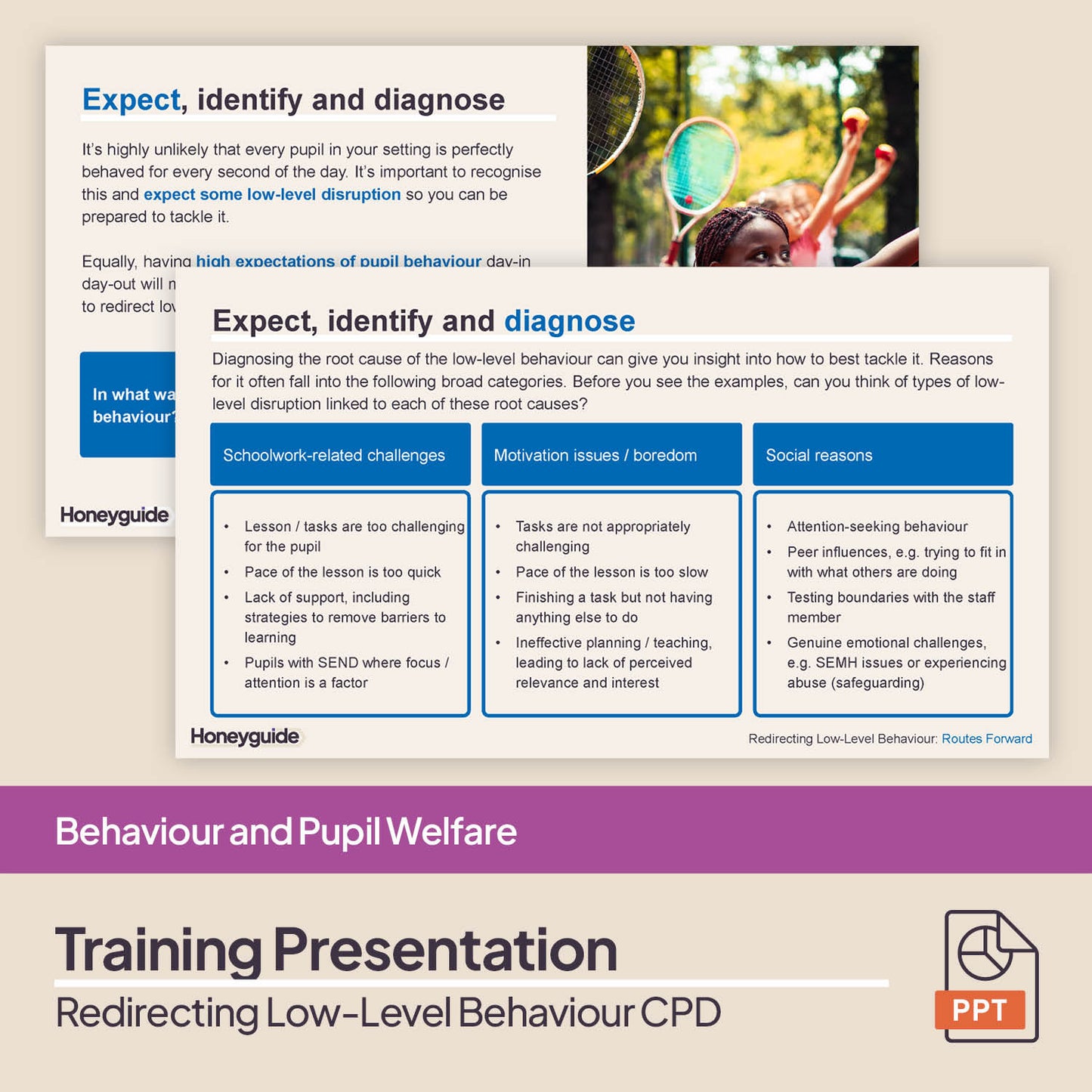
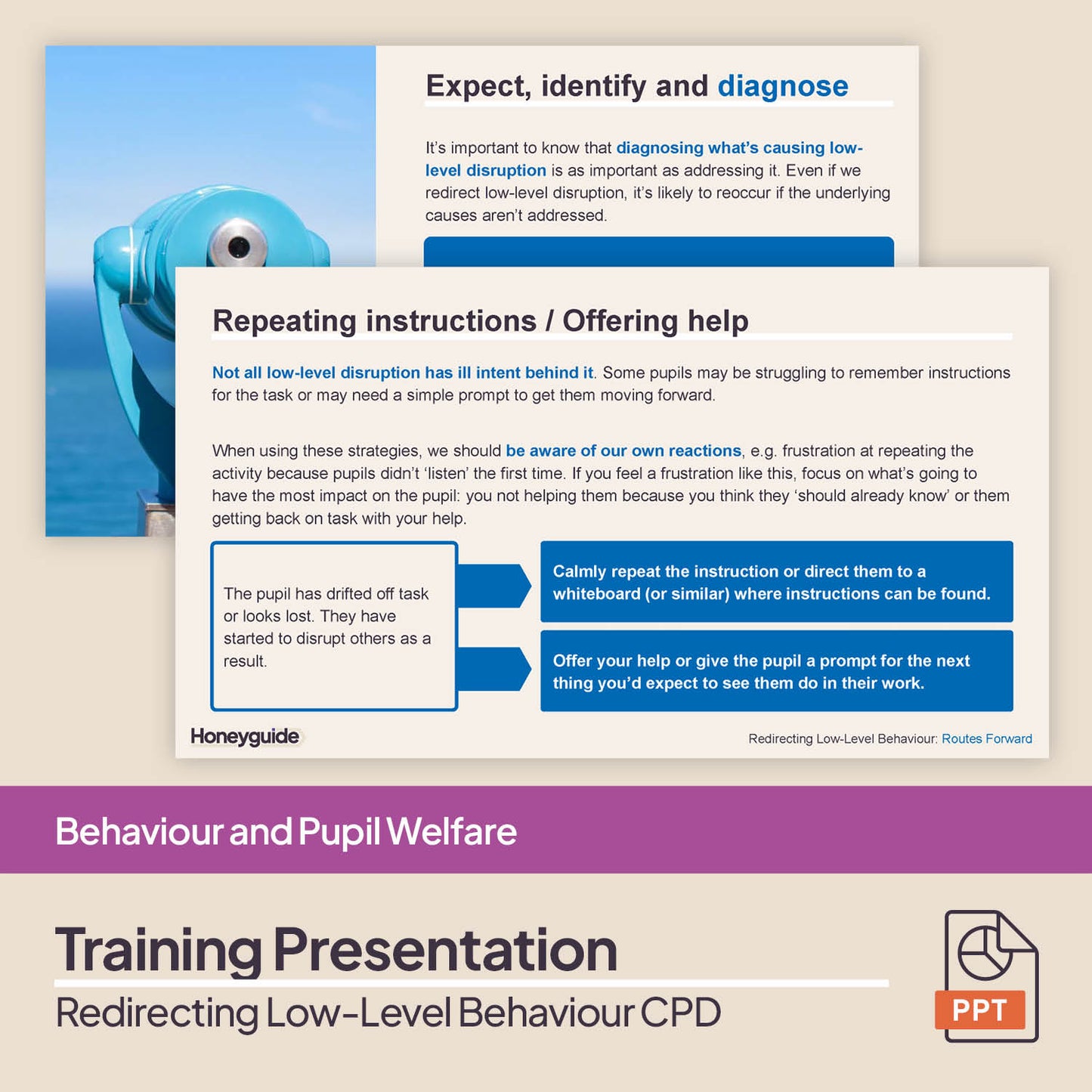
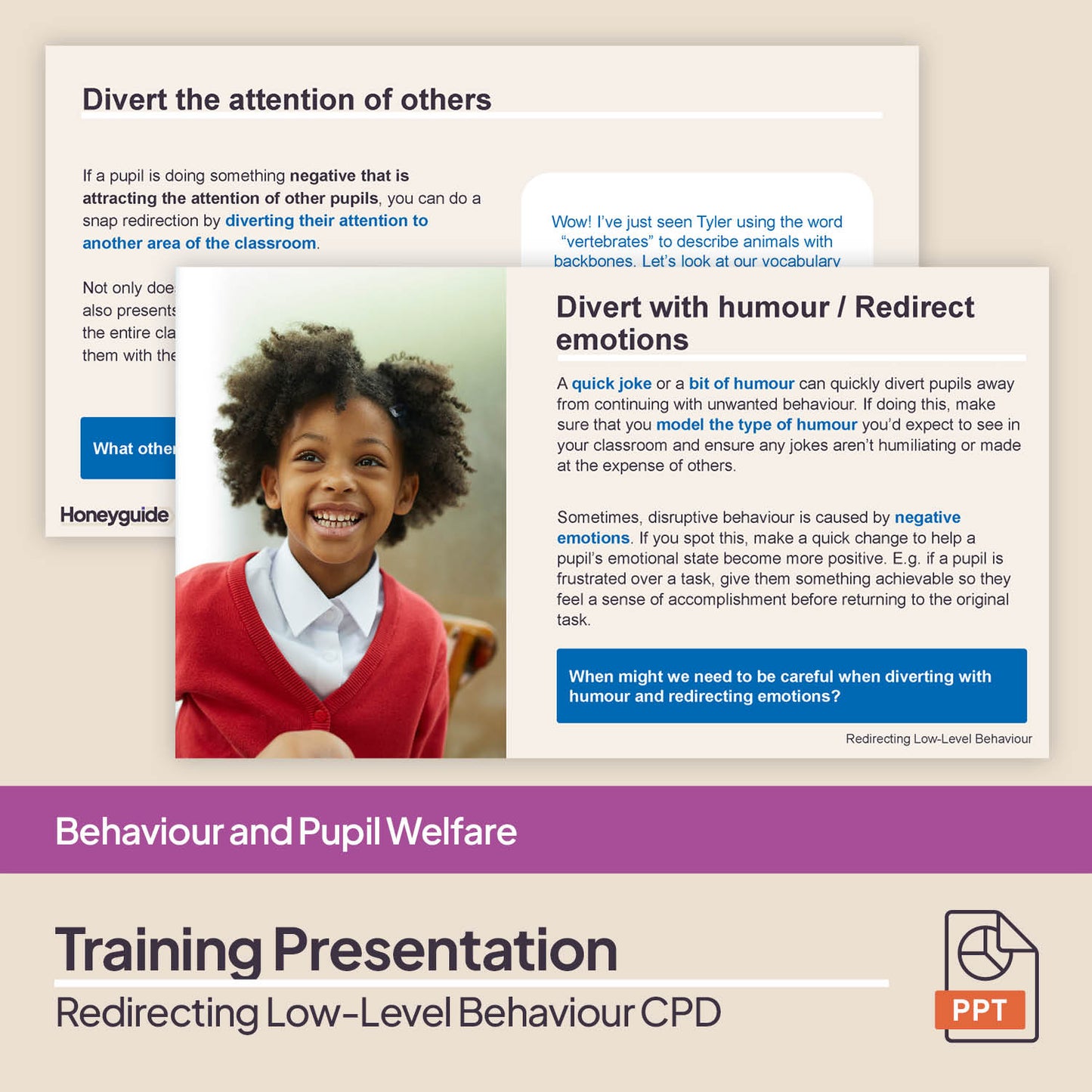
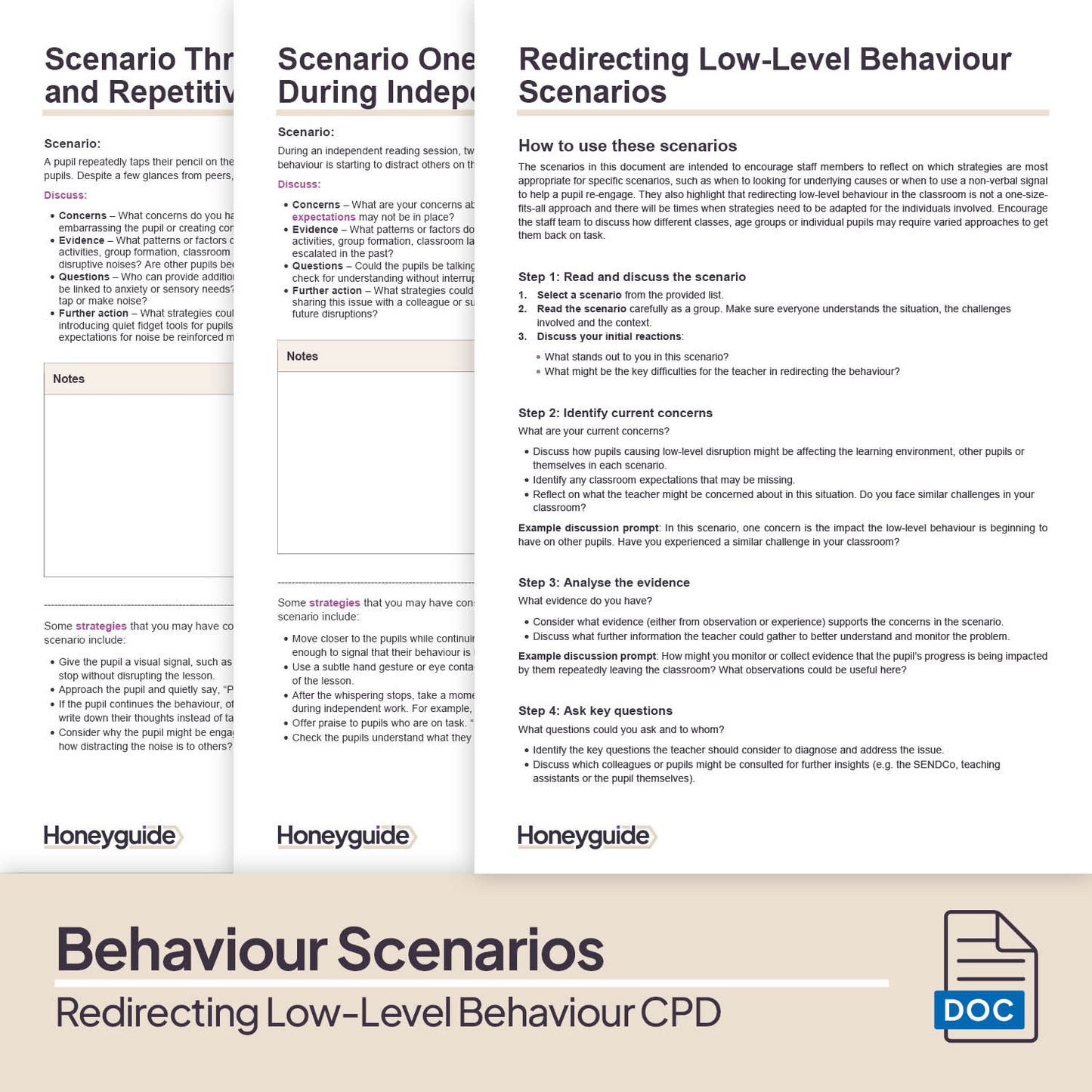
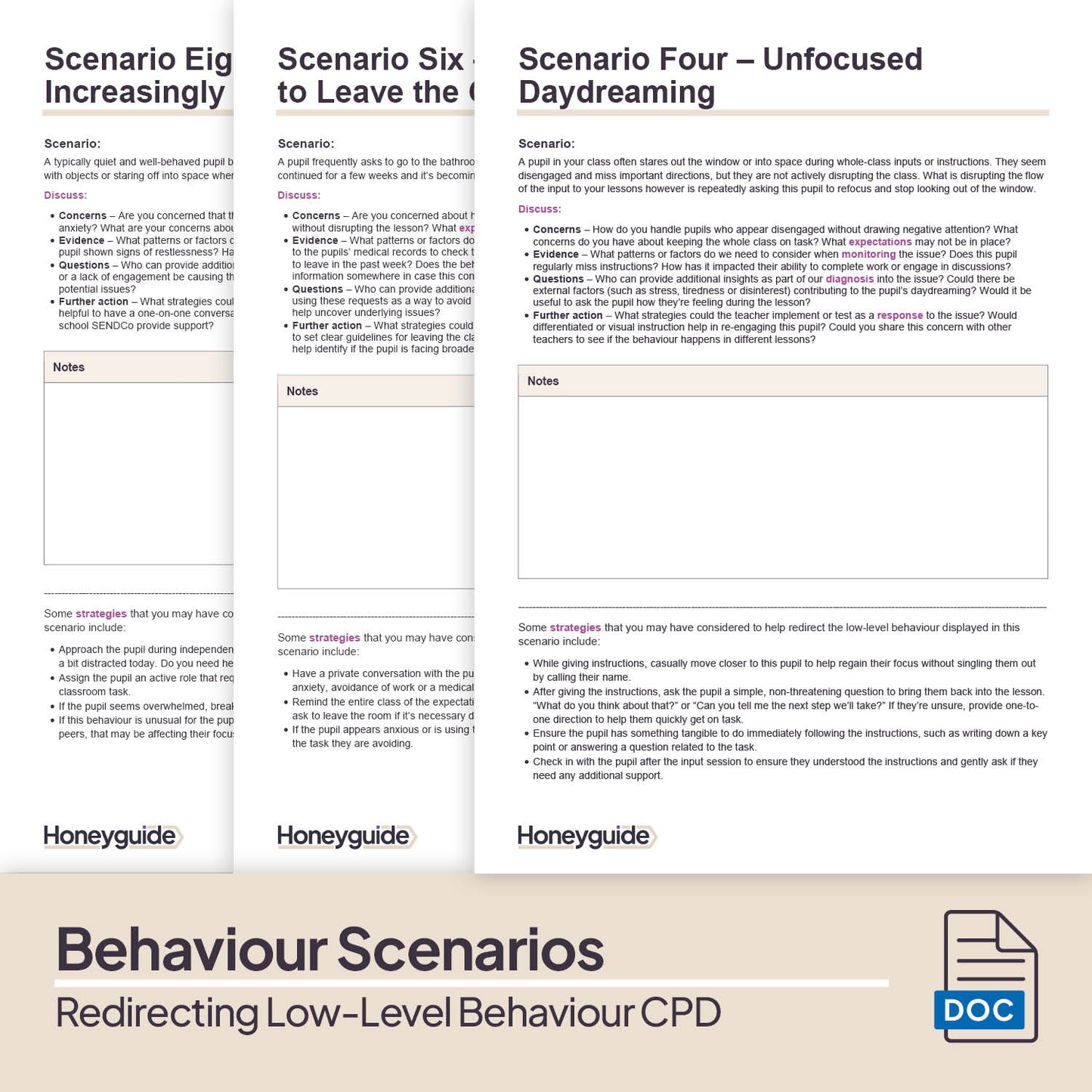
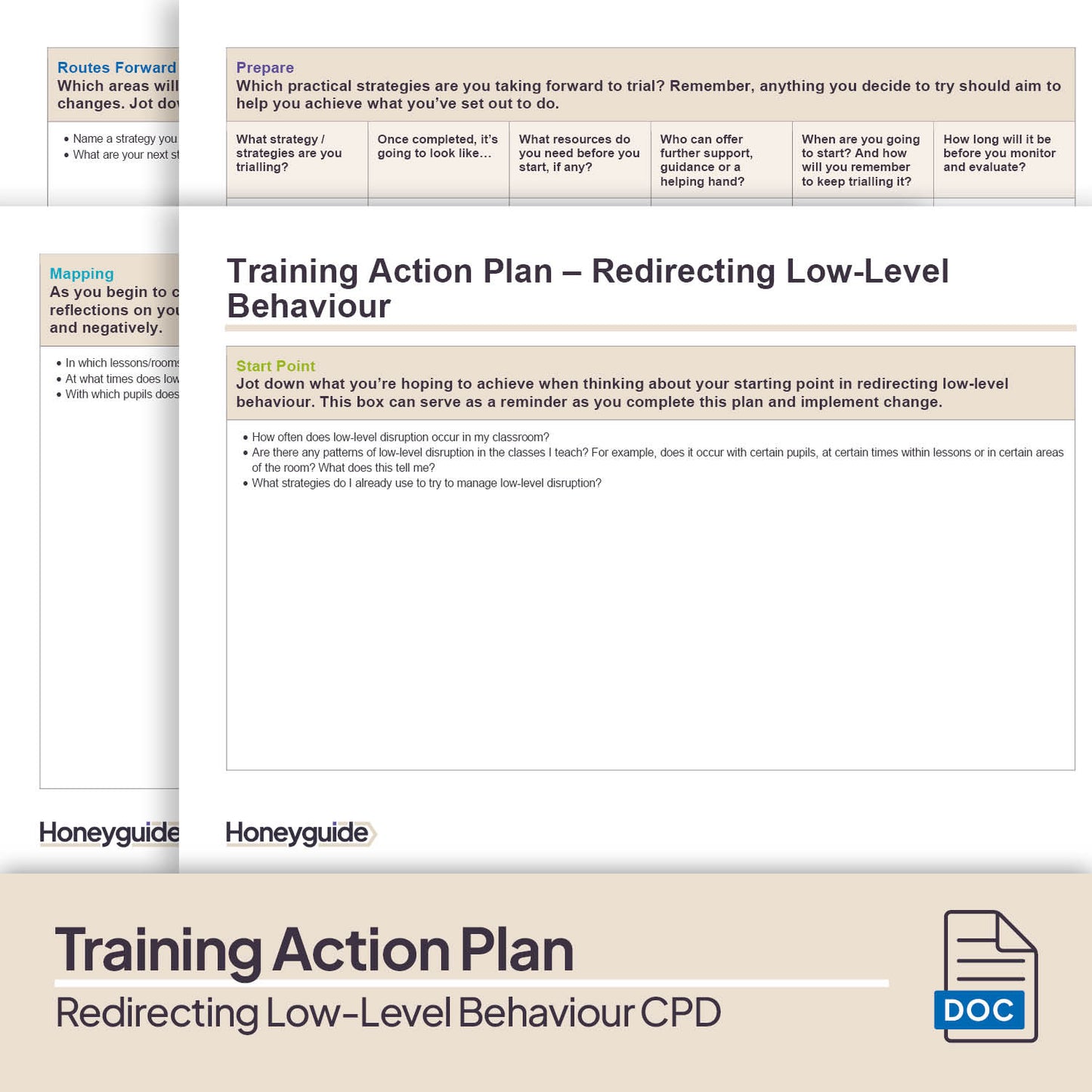
Collapsible content
What's included in this bundle?
This CPD training bundle contains three comprehensive resources:
- A Redirecting Low-Level Behaviour Training PowerPoint
- Eight behaviour management scenarios with different examples of common classroom examples where redirection of unwanted behaviour would be an appropriate behaviour management strategy
- A Training Action Plan to support your staff in understanding the theory then taking actions to alter their practice
The 29-slide PowerPoint, designed to last between 30 minutes to 1 hour, is a ready-to-roll CPD session on managing low-level disruption. It's a perfect way to train staff in the different ways they can redirect a pupil's behaviour to get learning back on track for all. With examples, eight behaviour management scenarios to choose from and thoughtful questions, the session allows for collaboration and sharing between staff members so you can be sure everyone's on the same page when it comes to managing disruptive behaviour.
The Routes Forward section where staff will learn effective strategies for redirecting behaviour is split into three parts, covering:
- How expectation, identification and diagnosis of low-level disruption in classrooms is as important as tackling it
- Multiple practical strategies to deal with low-level disruption
- When and why staff should follow up and tackle the root causes of the behaviour
Across the full session, there are many opportunities for staff to discuss what they do as part of their behaviour management practice as well as sharing what they've learnt from the session content, allowing for your more experienced staff members to support those who need some extra help. With low-level disruption, sometimes even a top tip for managing behaviour can be helpful as staff will need to use a short, sharp approaches each time, and this training session provides an excellent opportunity to do just that alongside learning new behaviour management strategies. The accompanying Training Action Plan will support staff, no matter their level of experience, to identify ways to amplify their teaching practice.
The PowerPoint and accompanying Word documents are fully editable but equally can be used 'as is' to present directly to the staff members of your choosing. The flexibility of the design and the length of the session means you can tailor it to support behaviour issues that you're currently facing too.
For more support with behaviour management CPD, browse Honeyguide's CPD resources.
Why Honeyguide CPD?
-
Budget-Friendly
No subscriptions, no expensive external providers, no ongoing commitments - just purchase the training you need as a one-off cost.
-
Flexible Delivery
Deliver CPD to suit your timetable and meeting schedules - no more scrabbling to find cover or overpaying for supply.
-
Adaptable Content
Fully editable training materials, action plans and scenarios means you can tailor the training to your setting's exact needs.
-
Intelligent Design
Striking and engaging training slides that explain theory and strategies without cognitive overload for your staff. No chalk and talk!
-
Lead by Experts
Develop your staff members' skills and knowledge by providing CPD that meets their precise needs, all lead by an expert - you!
-
Written by Experts
Designed by school leaders for school leaders - we've been in your exact position and we're here to help you.








